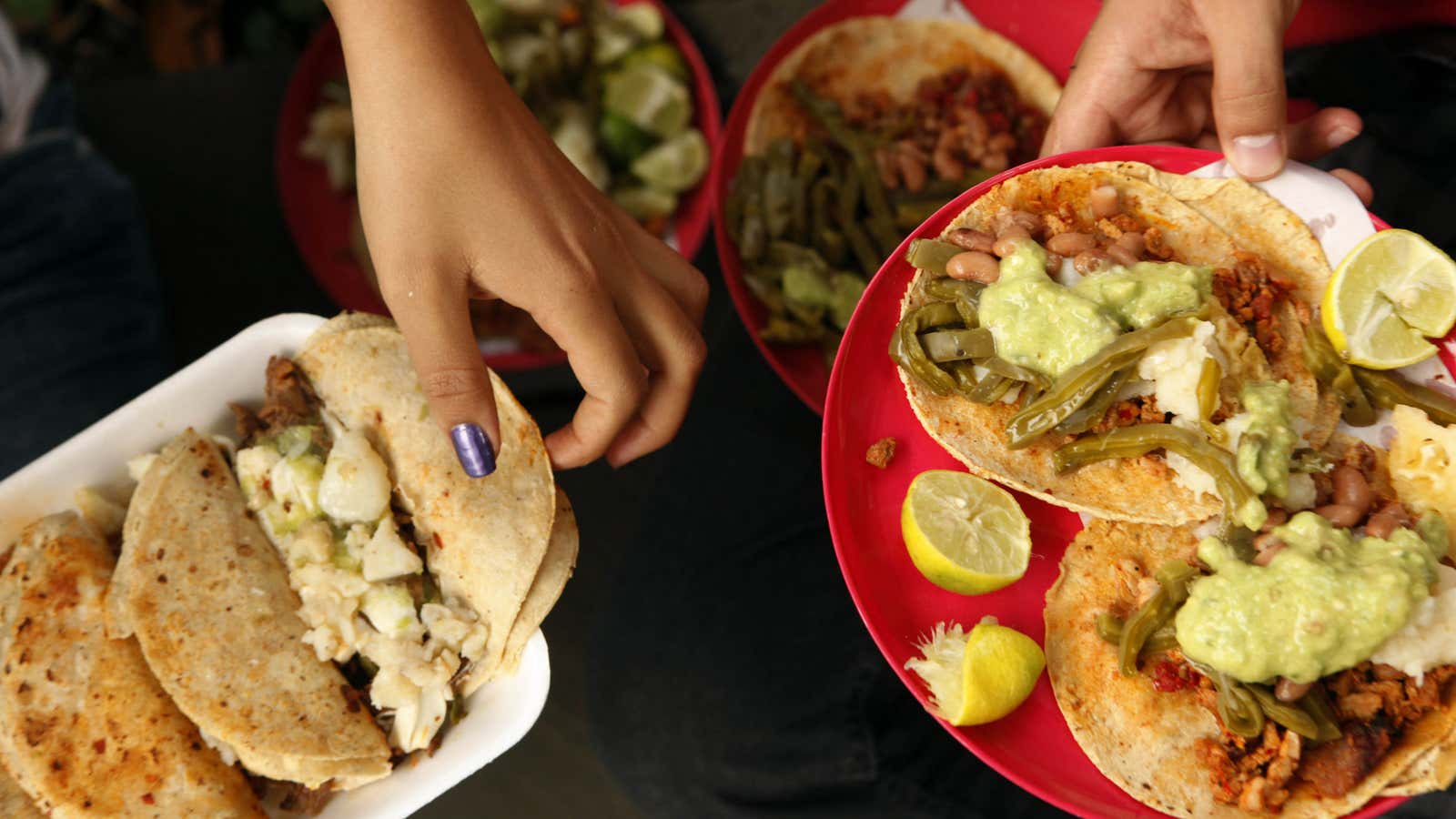Recently proposed fiscal reform in Mexico does nothing to rein in the country’s massive shadow economy, despite optimism among business leaders that it would.
Still, in a country where buying and selling goods without government intervention is woven into the culture, regulating and collecting taxes from a vast array of often highly mobile vendors remains a daunting challenge.
On any given day in Mexico, peddlers set up shop on street sides and sell everything from tacos or fruit to hats, brooms and furniture. During weekends, tianguis—open-air markets crammed with clothing, crafts, and vegetables—bustle with activity. The products sold by such venders vary widely. But for the most part, these small, independently run businesses have something in common: they don’t pay taxes.
There’s been a lot of talk about taxes in Mexico over the past week. President Enrique Peña Nieto just introduced reform that would increase taxes on some, such as higher earners and those making money in the stock market. At the same, it would time strengthen programs to help the poor.
The plan has already drawn criticism for falling too heavily on the middle class. Left out of the reform were contentious sales taxes on food and medicine. Also, it does nothing to regulate and tax Mexico’s burgeoning informal sector, business leaders say.
“This reform is only focused on the same taxpayers paying more taxes,” said Oswaldo Barragán Silva, the president of the Regional Chamber of Commerce for the Processing Industry in the state of Jalisco. Members of Silva’s chamber include companies that make furniture, plastics, electronics and other products.
Business leaders held out hope the reform would include some attempt at drawing in the informal sector. Especially since a labor initiative went into effect in July that aims to encourage more employers to bring their workers into the formal economy by signing them up for social security benefits.
That initiative, when combined with fiscal reform, would have taken the first steps in accounting for the large chunk of businesses that don’t pay taxes.
But the fiscal reform put forward by Peña Nieto takes no action to address the informal economy, said Francisco Plancarte, a corporate attorney who’s the president of the U.S.-Mexico Chamber of Commerce’s Pacific Chapter.
“It’s incomplete. It’s something that won’t resolve the issue as a whole,” Plancarte noted.
This informal—or shadow—economy in Mexico is substantial. A 2010 World Bank study estimated that, from 1999 to 2006, it’s value in Mexico reached 30% of the country’s GDP. At the time, Mexico’s GDP eclipsed $1 trillion.
As many as six in 10 workers in Mexico are employed in the informal sector.
In the Guadalajara metropolitan area—the second largest in Mexico with a population around 4.4 million—the shadow economy includes more than 500,000 workers, a 2010 study by the Guadalajara Chamber of Commerce said. The industry has generated more than $5.7 billion annually and avoided paying roughly $788 million in taxes each year.
Given the scope and popularity of such street-side vendors, any regulation would require considerable resources. It’s a country where restaurants operate out of houses; taco stands spring up, seemingly out of nowhere, once the sun sets; and people selling items such as gum, cell phone chargers and windshield wipers can be found in most major roadway intersections.
A massive bureaucracy would be required to register and collect money from such wide-ranging businesses that move so easily from place to place.
Even so, collecting a tax on food and medicine would have been a place to start, Plancarte said.
A tax on food would require more individuals in the informal economy to begin reporting to the government. From there, officials could begin figuring out a way to collect more taxes, Plancarte said.
Mexico’s limited tax base reduces the amount of money flowing into federal coffers and increases the tax burden in the regulated sector, reducing the country’s competitiveness in Latin America, Barragán Silva said. International manufacturers looking to locate their operations overseas might begin to turn to other locations in Central America if their tax costs continue to rise, he said. To that end, the proposed reform does nothing to promote economic development.
And—as far as those in the business world are concerned—any genuine changes should include those currently left out of the tax base.
“If the reform would be complete, it would include new taxpayers and promote investment,” Barragán Silva said.
